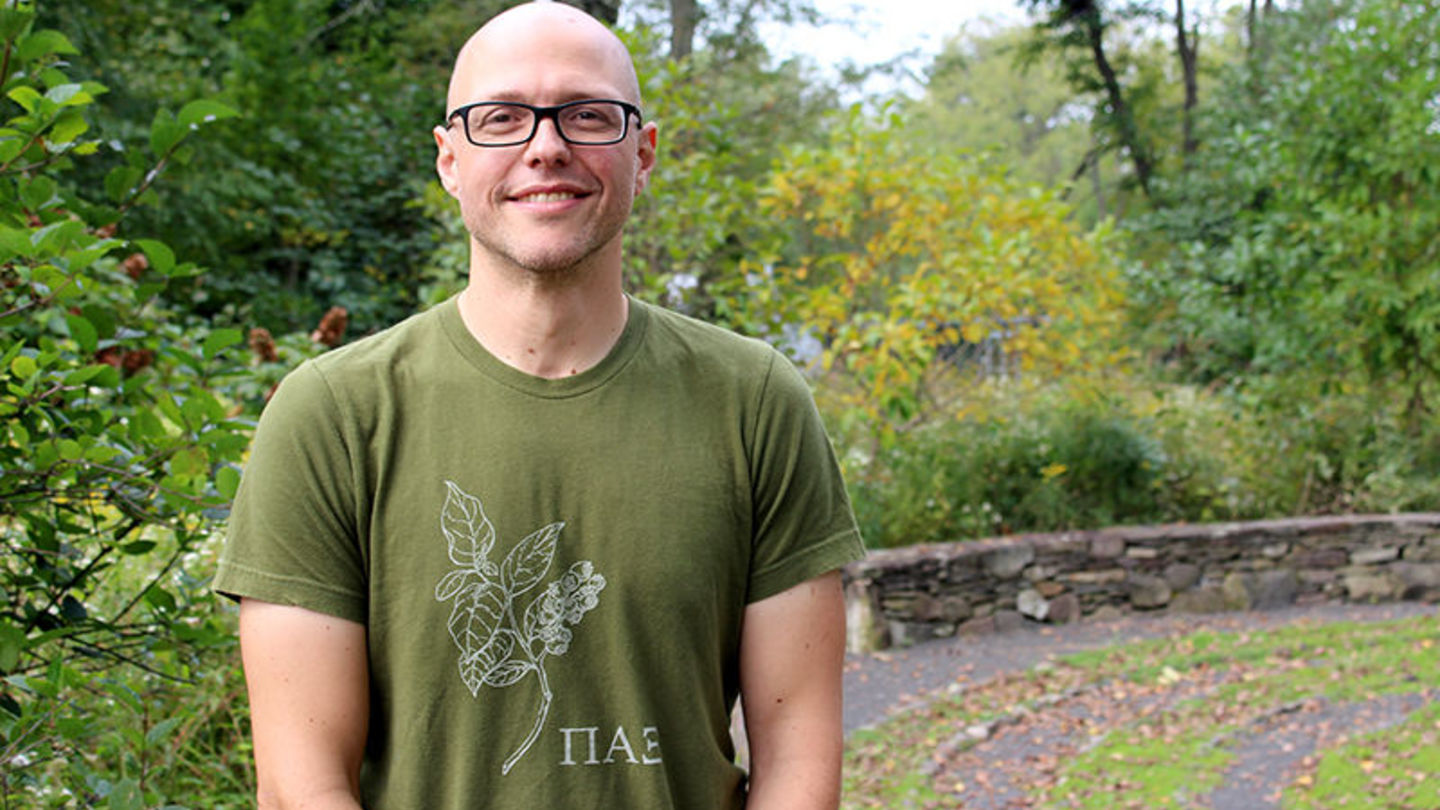
Horticulture Associate Professor Dr. Sasha Eisenman can't remember a time that he didn't have a passion for plants.
"I've always been fascinated by plants and a large part of it, I think, is just how essential they are to all of human existence," he said. "Throughout human history, we have depended on plants for medicine, food, shelter, clothing. That is just as true today as it was thousands of years ago."
Eisenman has an extensive background in medicinal plants and medicinal plant chemistry. His research has taken him to some very out of the way places, such as Uzbekistan and Kyrgyzstan. He literally wrote the book on medicinal plants of Central Asia, an area virtually inaccessible to western scientists and researchers until recently.
"Home to thousands of plant species, the region is a treasure trove for horticulturists.
It is a fascinating region — it was the middle of everything in terms of civilization," said Eisenman, who traveled to Central Asia during his research. "The region is where many of the wild species that have become important crops around the world originated — apples, apricots, alfalfa, flax, garlic, almonds, pistachios, sesame, numerous types of beans. It is an extremely important place in terms of plant species diversity. Breeders still go there to find disease resistant, cold tolerant species."
Eisenman is now bringing that sense of wonder and discovery to a new challenge as Chair of the Department of Landscape Architecture and Horticulture in the Tyler School of Art's Division of Architecture and Environmental Design.
"Since the department is still relatively new to Tyler, one of my goals is to help the programs to integrate and collaborate more effectively so that whether a student is taking a class at Tyler on Main Campus or they are in a studio or lab at Ambler, they are getting the best experience possible," said Eisenman, a member of the Temple faculty for eight years. "I feel my role as chair it to support our faculty's needs while also fulfilling all of the necessary processes within the University as a whole — accreditation, program reviews, reports. Our faculty are leaders in their fields; they are a group of exceptionally skilled professionals who are excited to be teaching the next generation of landscape architects and horticulturists."
For Eisenman, the 187-acre Temple Ambler campus provides the perfect backdrop for budding horticulturists to learn the science and art of growing plants and landscape architects to learn their craft.
"One of the unique aspects of Temple's landscape architecture program is the integration of horticulture courses within the curriculum, which provides our students a very strong foundation when they graduate. Our horticulture program has a curriculum that covers a wide range of topics and exposes our students to the diversity of disciplines that exist within the field. Our students are finding jobs in their chosen fields because of the diverse set of skills they are learning at Temple," he said. "Both fields are extremely relevant to our world today. Right now there are a lot of job opportunities in the green industry but not enough people with the skills to fill them — we are preparing our students to hit the ground running right out of the gate."
From a practical standpoint, Eisenman said, "our students have unique access to a campus that provides them the opportunity to directly examine, study and interact with the plants they are learning about."
"They can study traits the plants have evolved to tolerate different environmental conditions, and how they have adapted to survive. In terms of instruction, our students are obtaining significant tools for their profession," he said. "The Ambler Campus is naturally my primary source for plant material. I also use the campus a great deal for soils research and teaching, as there are a number of different native soil types. The campus in an invaluable resource for going out and exploring plants in both natural and cultivated environments throughout every season."
Students and faculty at Temple Ambler also have a wide variety of technological tools in the toolbox, including a Gas Chromatograph-Mass Spectrometer; HYPROP 2, which measures soil moisture potential; leaf porometers; a Li-Cor 6800 photosynthesis system to measure physiological responses in plants; and cutting-edge design and imaging software such as Lumion.
"The technology in our fields is always changing, always advancing. Plans are currently underway to develop new courses that will integrate technology used by multiple disciplines, virtual and augmented reality, for example," Eisenman said. "Improvements in the technology to support our curriculum ensure that we our providing our students the 21st century skills they'll need to succeed in their chosen fields."
From a practical standpoint, Eisenman said, "we want our students to be able to graduate with a set of skills that makes them highly employable in fields that they are passionate about."
"I hope our students have experiences that they cherish while they're here at Temple," he said. "I hope that they will be exposed to a worldview that will help them make a positive impact throughout their lives and careers."
